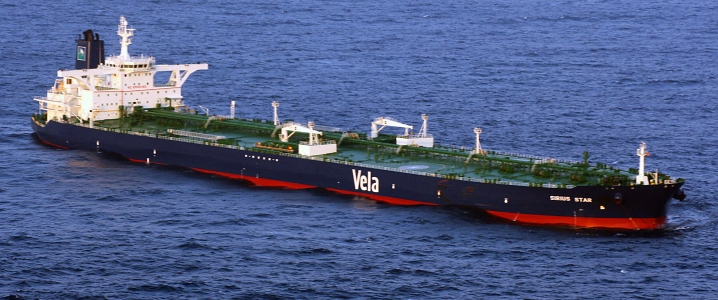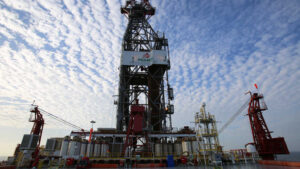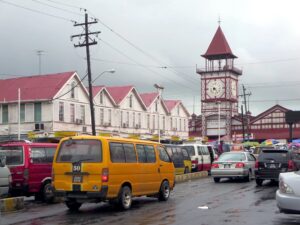
(Argus, 24.Mar.2020) — Some gasoline is trickling into Venezuela, while a few crude cargoes are still getting out, but the volumes and revenue are dwarfed by the US-sanctioned country’s dire need for fuel and revenue to check the galloping coronavirus.
According to shipping sources inside and outside Venezuela, current port activity points to a modest combination of inbound oil products, cabotage, floating storage and Asia-bound crude shipments likely heading into China, where refinery runs are picking up again.
Among the inbound cargoes is Malta-flagged Gemma carrying 320,000 bl of gasoline that loaded in Milazzo, Italy on 11 March. It is scheduled to arrive at state-owned PdV’s Amuay terminal on 30 March.
The Aframax River arrived at the El Palito refinery terminal on 17 March with 240,000 bl of gasoline bound for the Yagua distribution center in central Venezuela. Before docking, PdV diverted the Panama-flagged tanker to Bajo Grande near Maracaibo in western Venezuela. The vessel is currently loading 44,000 bl of heavy Boscan crude, with scheduled departure tomorrow, destination unknown.
At PdV’s Guaraguao terminal outside Puerto La Cruz, the Panama-flagged Sandino is loading 70,000 bl of Merey, departing today. At the Jose terminal, Liberia-flagged Icaria inbound from Singapore is currently loading 157,000 bl of Zuata synthetic crude, departing tomorrow.
Recently loaded crude tankers include Delta Angelica with 304,000 bl of Merey lifted at Jose on 23 March, Malta-flagged Seadancer with 73,000 bl of crude loaded on 20 March and due to arrive in Singapore on 29 April, and Greek-flagged Delta Tolmi that loaded 150,000 bl of Merey blend at Jose on 20 March, due to reach Sikka in India on 19 April, the shipping sources indicate.
The Panama-flagged Delos Voyager carrying 680,000 bl of fuel oil arrived on 18 March at the CRP refining complex in Paraguana. The fuel oil was shipped by Mexican firm Libre a Bordo, which has been picking up Venezuelan crude in exchange for food.
Delos Voyager left Amuay on 19 March bound for Gibraltar, where STS operations are commonplace.
Venezuelan crude production and exports have been choppy for more than a year, a reflection of escalating US sanctions and logistical constraints. In the wake of the oil price crash and virus-hit demand this month, market outlets for the Opec country’s crude have narrowed even further, with China the notable exception.
Sanctions under scrutiny
The government of President Nicolas Maduro has reiterated a call on the US to lift sanctions that he routinely blames for the country’s hardship. The US-backed mainstream political opposition, headed by Western-recognized interim president Juan Guaido, points the finger at Maduro for leaving Venezuela grossly unprepared to stop the contagion. An opposition offshoot led by former Lara state governor Henri Falcon is urging both sides to overcome their difference and cooperate to avoid a catastrophe.
UN High Commissioner for Human Rights Michelle Bachelet today called for an urgent re-evaluation of “broad sectoral sanctions” on countries ranging from Venezuela to North Korea to address the global health crisis.
The White House has not indicated any willingness to ease sanctions on Venezuela until Maduro steps aside to make way for free and fair elections.
Meanwhile inside Venezuela, the acute fuel shortage is impeding distribution of limited food and aid. Scant supply at service stations is now controlled by the military.
In Caracas “only six or seven service stations out of nearly 200 are open, the rest are closed,” an oil union official said. Nationally less than 90 out of almost 1,400 stations are still open, the official added.
Caracas, Maracaibo and other cities have nearly run out of wholesale food stocks, and produce markets in Barquisimeto and Maracaibo are already closed.
The main wholesale food markets in Caracas — Chacao and Quinta Crespo — have not been restocked for two weeks because state governments in the interior are refusing to sell gasoline to distributors.
According to international coronavirus statistics tallied by Johns Hopkins University, Venezuela currently has 84 declared cases. While such data is widely seen as underestimating the spread in most countries, the gap in Venezuela is probably far wider, experts say.
The Venezuelan population is seen as especially vulnerable. According to Guaido’s parallel administration, 83pc of Venezuelan households lack stable electricity service; 71pc lack potable water; 65pc of public transportation is shut down for lack of parts and fuel; and 53pc lack access to gasoline.
***

